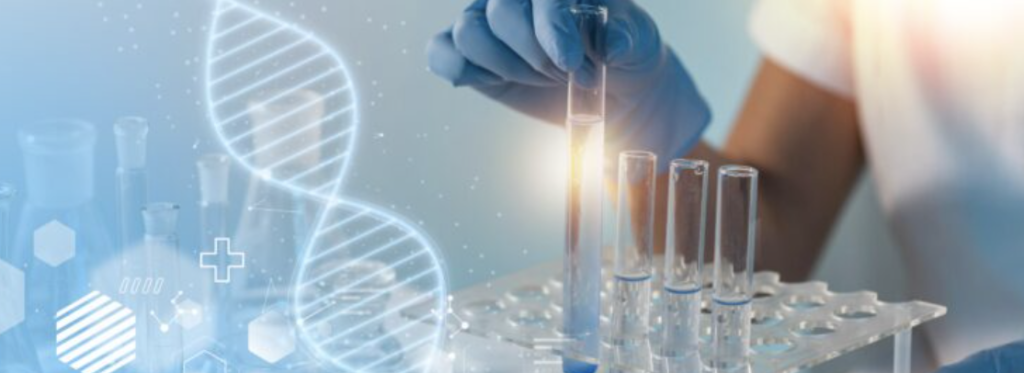Aurigene Oncology Limited, a subsidiary of Dr. Reddy’s Laboratories (BSE: DRREDDY) (NASDAQ: RDY), has unveiled promising results from its Phase 1 trial of Ribrecabtagene autoleucel (DRL-1801) — India’s first novel autologous BCMA-directed CAR-T cell therapy for patients with relapsed or refractory multiple myeloma. This development marks a significant milestone in India’s burgeoning biotech landscape, as the country continues to establish itself as a hub for cutting-edge therapeutic solutions, especially in oncology.
The SWASTH Study: A Game-Changer in CAR-T Therapy
The Phase 1 results come from the SWASTH study, which involved eight heavily pre-treated patients, all suffering from relapsed or refractory multiple myeloma, a cancer that affects plasma cells in the bone marrow. The patients had undergone a median of 5.5 prior treatments, including stem cell transplants, but saw their disease return post-transplant. Despite this extensive history of treatments, the trial results were nothing short of extraordinary. All eight patients (100%) responded to the therapy, with five out of eight (62.5%) achieving stringent complete response — a powerful indication that the treatment successfully eliminated detectable traces of cancer.
In terms of safety, the study results were also highly encouraging. None of the patients experienced severe side effects such as high-grade Cytokine Release Syndrome (CRS) or neurotoxicity, both common concerns with CAR-T therapies. These results represent a significant step forward in the treatment of multiple myeloma, particularly in a country like India where access to advanced cancer treatments has traditionally been limited.
With the Drugs Controller General of India (DCGI) approving the commencement of Phase 2 trials, Ribrecabtagene autoleucel is well on its way to becoming a transformative therapy for Indian patients. This trial was presented at the 21st Annual Meeting of the International Myeloma Society in Rio de Janeiro, Brazil, placing Aurigene’s work on the global stage.
Aurigene Oncology: Driving Innovation in Cancer Treatment
Founded in 2002, Aurigene Oncology has long been at the forefront of drug discovery and development, particularly in oncology. A wholly owned subsidiary of Dr. Reddy’s Laboratories, Aurigene is known for its innovative approach to cancer therapies, including small molecules and biologics. Ribrecabtagene autoleucel represents one of their most advanced efforts to date, highlighting the company’s growing capacity for developing world-class therapies in India.
Aurigene’s success with DRL-1801 is just one facet of the broader strategic initiatives of its parent company, Dr. Reddy’s. Dr. Reddy’s has been progressively expanding its oncology pipeline, a key growth area, while also advancing several critical collaborations in biosimilars, vaccines, and consumer healthcare.
Building a Pipeline of Excellence
This achievement follows on the heels of Dr. Reddy’s stellar Q1FY25 results, which showcased the company’s ability to balance its generics business with the development of high-value therapeutics like biosimilars and CAR-T therapies. Dr. Reddy’s strong position in North America’s generics market has provided the financial backbone to pursue these more complex therapeutic areas. The company reported consolidated revenues of ₹7,673 crore (US$921 million) in Q1FY25, a 14% year-on-year increase, driven by strong performance in the generics segment, particularly in North America and India.
In parallel with these efforts, Dr. Reddy’s has forged strategic alliances, such as its recent partnership with Alvotech for the commercialization of biosimilar denosumab, which is expected to make a significant impact in the U.S. and European markets. Furthermore, the company has entered into a licensing agreement with Gilead Sciences to manufacture and commercialize the HIV drug Lenacapavir in 120 countries, a move that underscores Dr. Reddy’s commitment to expanding access to critical medications globally. These moves reflect the company’s overarching vision to reach 1.5 billion patients by 2030.
A Growing Leadership Role in Biosimilars and Advanced Therapeutics
Beyond its CAR-T program, Dr. Reddy’s has also been focusing on growing its biosimilars portfolio. In recent years, biosimilars have become a key growth driver for the company, with products targeting rheumatoid arthritis, osteoporosis, and certain cancers. The company’s global launch of biosimilar abatacept and its plans for launching biosimilar rituximab in Europe signal that Dr. Reddy’s is firmly positioning itself as a leader in this rapidly expanding market.
Dr. Reddy’s has also made significant strides in consumer healthcare, having recently acquired Haleon plc’s Nicotinell® portfolio — one of the world’s largest brands in the Nicotine Replacement Therapy (NRT) category. This acquisition marks the company’s foray into building a robust consumer healthcare business, which aligns with its focus on wellness and preventive care. The joint venture with Nestlé India to bring nutraceutical products to the Indian market is another key initiative in this space.
Capitalizing on a Robust Financial Position
Dr. Reddy’s financial health remains solid, bolstered by a net cash surplus of ₹6,731 crore (US$808 million) as of June 30, 2024. This strong balance sheet enables the company to continue making strategic investments in M&A, R&D, and manufacturing capabilities. By allocating resources to key growth areas like CAR-T therapies, biosimilars, and consumer health, Dr. Reddy’s is poised to deliver sustained value for its shareholders and patients alike.
Looking Forward: The Future of Oncology in India
With the success of Phase 1 in the SWASTH study, Aurigene Oncology’s Ribrecabtagene autoleucel represents a significant leap forward for cancer treatment in India. If the upcoming Phase 2 and subsequent phases continue to show promise, India could soon join the ranks of countries leading the way in advanced CAR-T cell therapies.
Dr. Murali Ramachandra, CEO of Aurigene Oncology, commented, “The results from the trial in heavily pre-treated relapsed refractory myeloma patients are very exciting for us in India. We are thrilled with the data, as the drug could be transformative for Indian patients with myeloma.”
As Aurigene moves forward with its clinical pipeline, and Dr. Reddy’s continues to expand its global footprint, the future looks bright for innovative cancer treatments, not just in India, but around the world. The CAR-T program is a reflection of India’s growing capability to develop advanced biotechnological solutions that can impact global healthcare outcomes.
This achievement stands as a testament to Dr. Reddy’s Laboratories’ commitment to pushing the boundaries of science, making life-saving therapies more accessible, and delivering on its mission of “Good Health Can’t Wait.”

This article is for informational purposes only and is not intended to serve as financial, investment or any form of professional advice, recommendation or endorsement. Please review the full documentation detailing financial compensation disclosures and disclaimers the article is subject to. The Author, Global Markets News Network, is a commercial digital brand compensated to provide coverage of news and developments innovative companies including the one aforementioned as detailed in the full documentation and it is thus subject to conflicts of interest.

